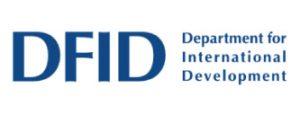
Project location: North Waziristan, South Waziristan, Kurram, Khyber, Orakzai
Project start and end dates: February to April 2019
Project description
BEFARe conducted a beneficiary feedback study for UK Department of International Development (DFID) through Conflict, Stability and Security Fund (CSSF) funded FATA Transition and Recovery Program (FTRP) in five agencies of former FATA i.e. North Waziristan, South Waziristan, Khyber, Kurram and Orakzai. The program, implemented by UNDP Pakistan, through local Implementing Partners and Government line departments aimed to support the institutional capacity building of the FATA Secretariat as well as provision of basic infrastructure to the target communities through Community Driven Development Schemes (CDD), livelihood opportunities and support to reforms to improve the governance of these areas to ensure durable returns and stabilization of FATA. BEFARe conducted the study with a scientifically drawn sample to ensure the representative nature of the findings. The rationale of the study was to validate completion of the community development schemes and gather the missing information from beneficiaries of community infrastructure development schemes. The information was used by CSSF to better shape the future work aimed at supporting overall stability and recovery program in FATA.
Under the intervention, BEFARe successfully completed a total of 3,000 household interviews to report progress against the set milestones and validated completion of the CDD schemes by gathering the missing information from the beneficiaries of community infrastructure development schemes. The survey was conducted in the same tribal districts where CDD schemes were implemented. Prior to the commencement of data collection, survey questionnaire was translated into Urdu language by BEFARe to make it easy and understandable for the enumerators as well as the targeted respondents. A total of 120 community schemes (84communitydevelopmentschemes and 36 line department schemes) were targeted in these areas using a random survey. The interviews were conducted in person at respondent’s residences and consisted of a mixture of close-ended and open-ended questions. Each interview took approximately took 30 to 40 minutes.
For quality control and supervision, field activities were monitored by supervisors through regular site visits to each district of data collection. The supervisors also randomly conducted back checks through site visits as well as through telephones. Daily data collection and field photos sharing were mandatory for every supervisor. Each Friday, feedback reports about data collection were also shared with the donor through email for their valuable feedback. The findings of the survey identified gaps in, and problems arising from the existing approach in implementation of community infrastructure schemes and to assess the knowledge level of beneficiaries / respondents about FATA reforms process. The data gathered by BEFARe assisted CSSF to better shape the future work targeted at supporting overall stability and recovery program in erstwhile FATA.
